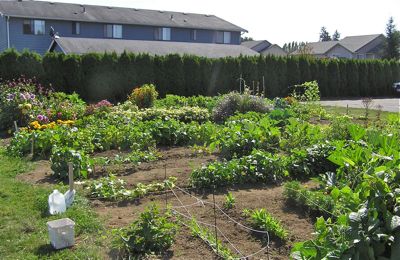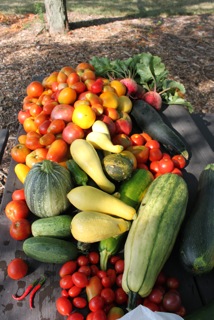The Gardens We Need: Grow What You Eat, Grow Differently

Imagine if every home had a garden. A small piece of earth where you not only grew your own food but also knew exactly what you put into it. No hidden chemicals, no unknown substances—just the seed, the soil, the water, and your care. Imagine breathing cleaner air in your compound because of the green life you’ve nurtured. Imagine walking out to your backyard, not onto a tiled floor that radiates heat, but into a refreshing garden where you can sit, reflect, and enjoy fresh air.
Have you ever paused to ask yourself where the rainwater in your home compound really goes? Does it just wash away, or could it be harvested and directed to nurture life?
There’s something profoundly foundational about returning to the soil. From the very beginning, God’s original mandate to man was to “tend and keep” the earth (Genesis 2:15). Stewardship of the soil and environment is not a modern idea—it’s a divine assignment. To cultivate with wisdom, to protect creation, and to ensure life continues to flourish.
Yet, in many places today, including here in Ghana, food production has become fast-paced, chemical-driven, and increasingly detached from the natural rhythms God set in place. But there’s another way—a slower, more thoughtful way that restores balance. One that recycles nutrients, conserves water, and works with nature instead of against it.
The International Federation of Organic Agriculture Movements (IFOAM, 2015) outlines four principles that can guide us back to this way:
- Health – for our bodies and the soil.
- Ecology – respecting natural cycles.
- Fairness – ensuring equity across people and ecosystems.
- Care – protecting what is fragile and future generations.
When we embrace these principles, soil is no longer just “dirt.” It becomes living, breathing ground that needs rest and replenishment. Water stops being “just water” and becomes a sacred resource to be cherished. Every insect, every microbe, every drop of rain has a purpose in the web of life.
This is why we need gardens—not just farms far away, but gardens in our homes and communities –self food sovereign. Gardens that recycle household waste, gardens that make use of rainwater, gardens that feed us with clean and nourishing food.

Because this is not just about food. It is about healing—healing the land, healing our bodies, and healing our choices.
The gardens we need are not complicated. They are intentional. They remind us of God’s call to steward creation, and they give us a daily connection to life, growth, and hope. So, grow what you eat. And grow differently.

